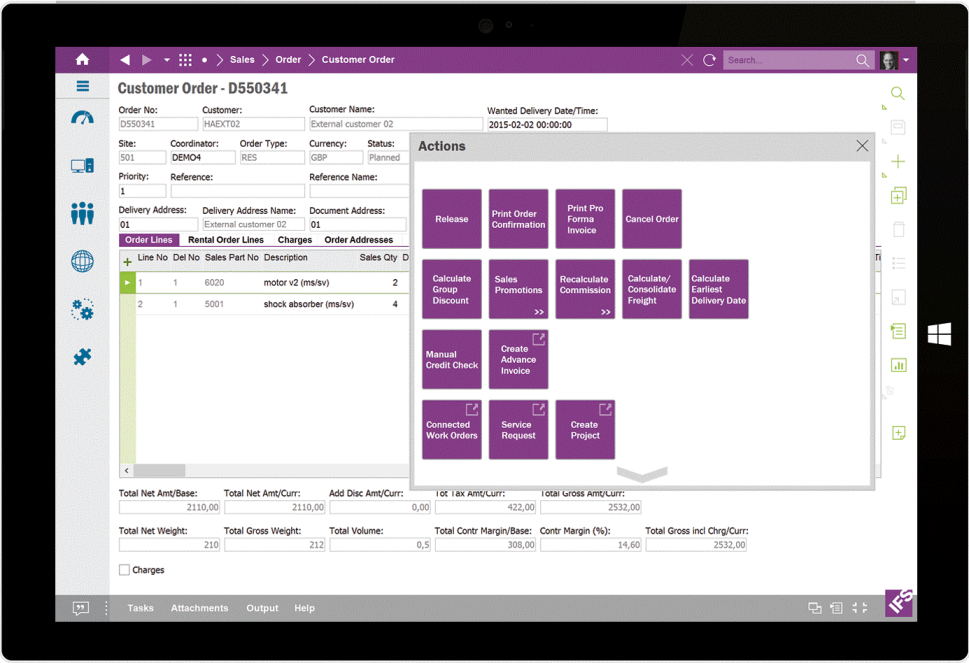To see where the mobile evolution is going, I’d like to consider my own behavior as a business traveler going through airport security. Standing by the conveyor, I’m likely to produce from my carry-on bag 1) a personal phone, 2) a corporate phone, 3) a laptop, 4) a tablet, and perhaps other peripheral hardware. I hope that this scene is likely to disappear, or diminish, over the coming years. What devices do you like to keep or get rid of?
I’m convinced that the smartphone will be there, of course: it’s a convenient form factor. The size, weight, screen resolution and always-on capabilities make the smartphone the perfect device for email administration, social and information consumption.
But it’s less likely that a tablet will play the same role in the future.
While a tablet like an iPad or a Galaxy Tab is great for information consumption such as watching movies or email administration, it’s not an optimal device to use when it comes to data creation, including use of office applications such as Word, Excel and PowerPoint, or accessing your business applications.
For data creation and data consumption on one single device, I think the hybrid laptop will pave the way for increased usage.
The advent of Windows 8, with its touch-first experience, means that users can deploy Windows-based business applications in a touchscreen environment. For simple tasks, they may navigate the application on the touch screen and use the embedded keyboard to type in data. For more traditional work while sitting at a desk, the tablet or hybrid can be connected to a keyboard and monitor, thereby transforming the device into a regular PC with access to all available desktop applications.
For example, IFS customer Cheer Pack North America have Microsoft Surface Pro 3 and IFS Applications in full swing and this video showcases the benefits of combining the two:
Is your business software ready for touch-first experience?
The majority of business applications that companies run have design limitations that restrict users to mouse-only operation, limiting mobility. In today’s business world, business applications are better served by being touch-enabled, a development in which IFS has staked out an early leadership position.
Despite the high level of interest in mobile interfaces for enterprise solutions, most companies still run secondary business applications on mobile devices. Meanwhile, the main functionality runs on ERP, which is not necessarily mobile-enabled. This will change and IFS is ahead of that change.
IFS Lobby and the new visual identity of IFS Enterprise Explorer in our latest release, IFS Applications 9 that we announced last month, let users navigate through the entire suite with touch experience.
Let me mention a few UX improvements in IFS Applications 9:
- New responsive design for Lobby pages to zoom in and zoom out to view detailed information depending on screen size and resolution

- Improved application toolbar to handle business transactions and application pages. The toolbar is logically placed to the right of the screen to navigate with right hand touch, but is also possible to place on left side of the screen when you dock your hybrid laptop to an external keyboard and using a mouse, and is now close to the shortcut panel.
- Improved shortcut panel to navigate to application pages. The new design is optimized to give maximum space for the actual pages on a tablet screen.
- More space between the records in overview tables to facilitate touch navigation.
- Big buttons to navigate and execute actions from pages through touch.

The right device for the right usage pattern
When we look at sales data for computer hardware, perhaps the most interesting recent figure relates to sales of the Microsoft Surface Pro 3.
Numbers released by Microsoft for Q1 2014 show that Surface Pro sales are approaching $1 billion, a figure that gives credence to the early assertion in digital trends that hybrids are the future of computing.
The global decline in sales of desktops and laptops continues, while tablets are the rising stars in sales. IDC projects tablet sales are expected to reach 234.5 million units in 2015, similar to Gartner’s prediction for the year.
 Interestingly, Gartner analyst Ranjit Atwal noted last year that the trend in recent years toward replacing desktops with laptops would decline as consumers and businesses become more discriminating in sorting out “the right device for the right usage pattern.”
Interestingly, Gartner analyst Ranjit Atwal noted last year that the trend in recent years toward replacing desktops with laptops would decline as consumers and businesses become more discriminating in sorting out “the right device for the right usage pattern.”
Could that device be the hybrid?
For a detailed look at our take on this topic, take the opportunity to read the new IFS whitepaper “IFS Applications 9 and hybrid laptops” that I’ve written. Free download.
Let me know what you think.